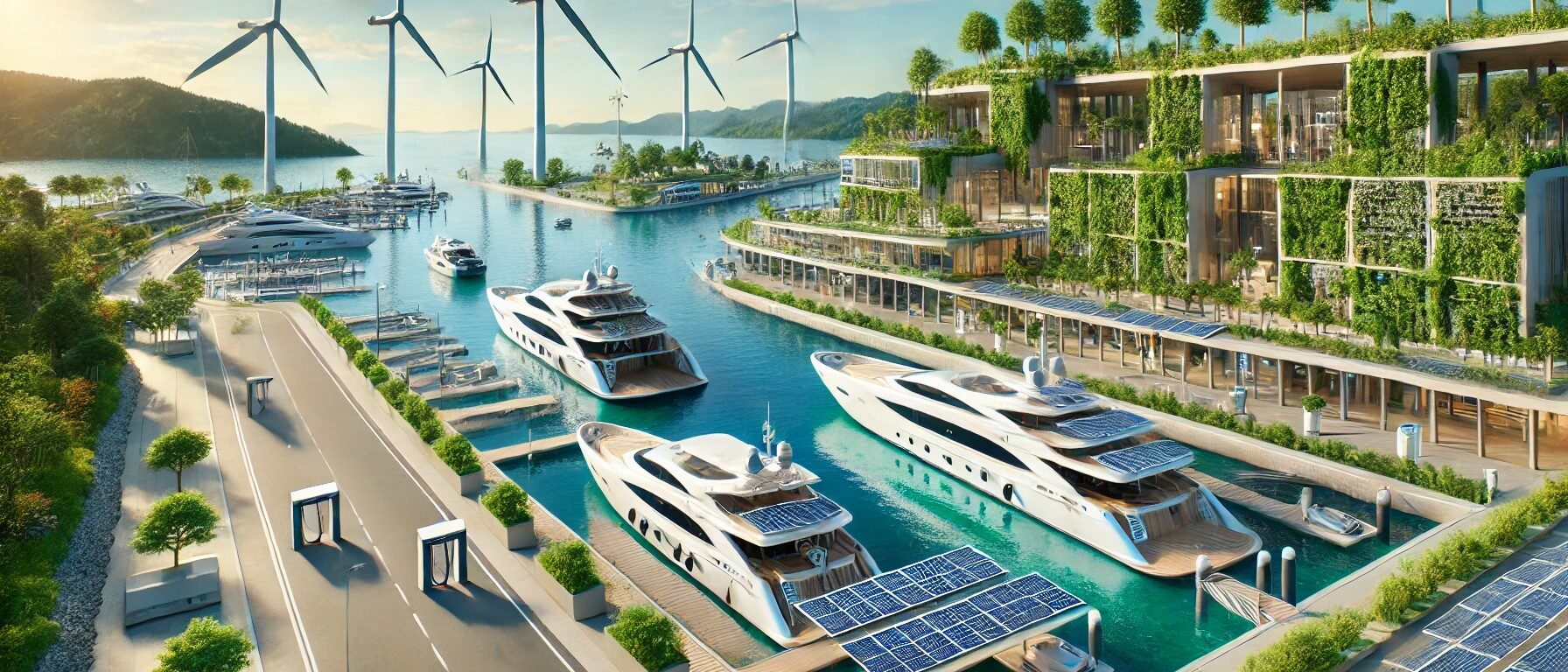From 1 January 2025, one of the most important European programmes aimed at combating climate change – FuelEU Maritime – will come into force . It is part of the EU’s transport decarbonisation strategy, which covers various sectors, including maritime transport. The programme aims to significantly reduce greenhouse gas emissions in shipping, including yachts. What changes await shipowners and yacht owners? What do they need to know to adapt to the new regulations?
What is FuelEU Maritime?
FuelEU Maritime is a European Union regulation aimed at reducing greenhouse gas emissions from maritime transport. The program covers ships with a gross tonnage of over 5,000 tons that visit EU ports. From 2025, these units will have to gradually reduce their greenhouse gas emissions compared to 2020 levels. According to the assumptions, emissions are to be reduced by 80% by 2050.
What changes await sailors and shipowners?
For yacht owners, especially those sailing in EU waters, FuelEU Maritime brings a number of new challenges and responsibilities:
- Greenhouse Gas Emissions Requirements
The program introduces specific emission reduction targets for ships. For sailing vessels, this means that shipowners will have to monitor their emissions and adjust fuel consumption to meet EU standards. A 2% reduction in emissions will be required by 2025, and by 2050 it is to reach 80%. - Mandatory renewable and low-emission fuels
FuelEU Maritime places great emphasis on promoting sustainable fuels. Yachts, especially larger ones, will have to use alternative fuels such as biofuels, ammonia or hydrogen, which have a lower environmental impact. For many shipowners, this means adapting their fleet to new technologies. - Shore Power and Low-Emission Technologies
From 2030, passenger and container ships, and later other vessels, will be required to use shore power if available in port. This is a major step towards reducing emissions from ships docked in port. Although this change mainly affects larger vessels, it could also affect yachts, especially in the context of ports that adopt this technology. - Emissions reporting and monitoring obligations
Under the FuelEU Maritime regulations, shipowners will be required to report their emissions and fuel consumption. These requirements will apply to all ships visiting EU ports, including yachts, which must submit appropriate emission monitoring plans. Failure to comply may result in penalties.
What are the benefits of implementing FuelEU Maritime?
Although the introduction of FuelEU Maritime involves additional obligations and investments, it can bring numerous benefits in the long term:
- Environmental protection
Reducing greenhouse gas emissions from maritime transport will help improve air quality and combat climate change. For many yacht owners who care about the environment, complying with the new regulations will be a step towards more sustainable shipping. - Technological innovation
FuelEU Maritime supports the development of new, cleaner propulsion technologies. Yacht owners who decide to invest in sustainable energy can count on the benefits of new technologies such as solar panels, fuel cells or hybrid drives, which can reduce the operating costs of the vessel. - Adaptation to global standards
By implementing FuelEU Maritime, the EU is becoming a leader in the field of decarbonization of maritime transport. Yacht owners and shipowners who adapt to the new regulations will be ready for future changes that may also be introduced in other markets, such as the US, Asia or Australia.
Summary
FuelEU Maritime is a significant step towards sustainable maritime transport. For yacht owners, this means adapting to new emission and fuel requirements. This gives them the opportunity to use innovative technologies that will benefit both the environment and the wallets of shipowners. These changes can be a challenge, but also an inspiration to develop the sailing industry in a more ecological way. It is worth starting preparations now to be ready for the upcoming changes and challenges in 2025.

